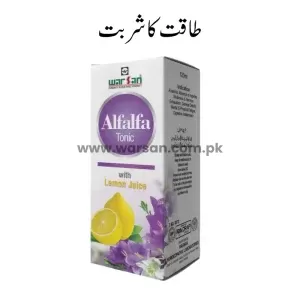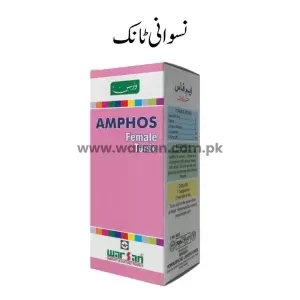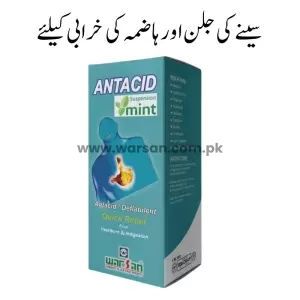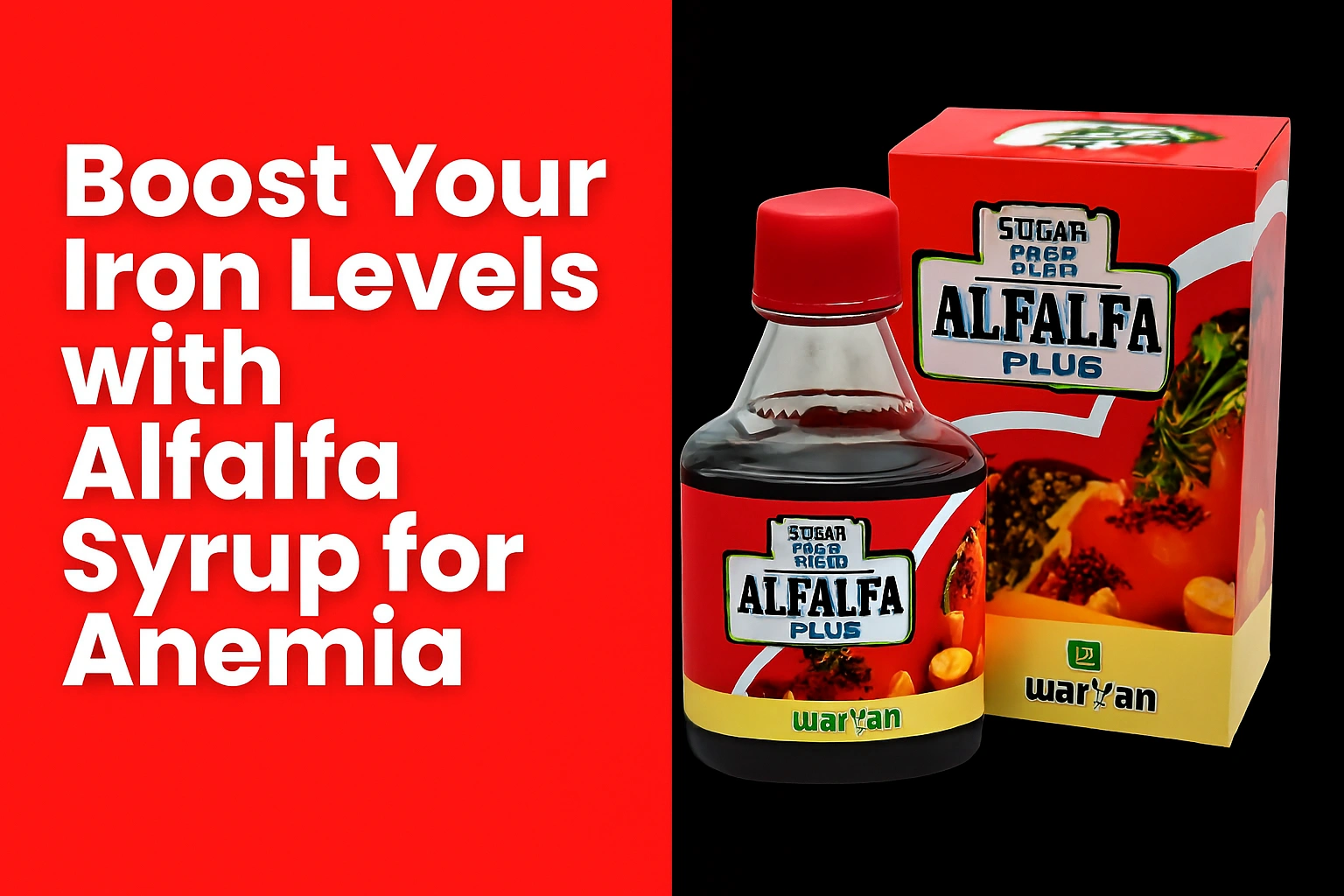If you’re feeling fatigued, dizzy, or short of breath, there’s a good chance that anemia might be at play. Millions of people worldwide struggle with low iron levels, and the symptoms can be debilitating. But what if you could boost your iron levels naturally without relying solely on iron supplements or medications?
Alfalfa syrup is a potent, yet underutilized, remedy for anemia. Packed with essential nutrients, this herbal solution has been used for centuries to combat iron deficiencies. In this post, we’ll explore how alfalfa syrup can help improve your iron levels, why it’s an excellent natural remedy for anemia, and how to incorporate it into your daily routine for better health.
By the end of this article, you’ll learn the scientific basis behind alfalfa’s benefits, how to use it, and the best practices for incorporating it into your lifestyle.
What is Alfalfa Syrup and How Does It Help with Anemia?
Alfalfa, scientifically known as Medicago sativa, is a legume commonly found in herbal medicine. Alfalfa syrup, a concentrated liquid made from the alfalfa plant, has been traditionally used to support various health conditions, including anemia.
How Does Alfalfa Syrup Boost Iron Levels?
The main benefit of alfalfa syrup for anemia lies in its rich nutrient profile. Alfalfa is high in chlorophyll, which is structurally similar to hemoglobin—the protein in red blood cells responsible for oxygen transport. This similarity aids in boosting the production of red blood cells and improving iron absorption. Furthermore, alfalfa is a natural source of vitamins A, C, E, and K, as well as essential minerals like calcium, magnesium, and, notably, iron.
When you consume alfalfa syrup, these nutrients work synergistically to promote better iron absorption and blood cell formation, addressing the root cause of iron deficiency anemia.
Alfalfa Plus Syrup 180ml
What Are the Main Benefits of Alfalfa Syrup for Anemia?
1. Supports Healthy Red Blood Cell Production
Alfalfa syrup provides vital nutrients like iron, folic acid, and vitamin B12, all of which are crucial for the production of healthy red blood cells. This makes it an excellent choice for people with anemia, especially those with iron deficiency.
2. Promotes Iron Absorption
Alfalfa contains significant levels of chlorophyll, which plays a vital role in enhancing the body’s ability to absorb iron. Chlorophyll’s structure is similar to that of hemoglobin, meaning it directly supports iron-rich blood cell production.
3. Natural Source of Iron
Unlike synthetic iron supplements, which can sometimes lead to digestive discomfort, alfalfa syrup provides a natural source of iron that is gentle on the stomach. This makes it an ideal option for people seeking to avoid the side effects of iron supplements.
How Do You Use Alfalfa Syrup for Anemia?
1. Dosage and Administration
When using alfalfa syrup for anemia, it’s important to follow the recommended dosage. The exact dosage can vary depending on the concentration of the syrup, but generally, adults should take one to two teaspoons (5-10 ml) per day. It’s best to consult with a healthcare provider to determine the right amount for your specific needs, especially if you’re taking other medications.
2. Best Time to Take Alfalfa Syrup
To maximize absorption, it’s ideal to take alfalfa syrup in the morning or after meals. This helps your body make the most of the nutrients in the syrup without interfering with your digestive process.
3. Mixing Alfalfa Syrup with Other Supplements or Foods
Alfalfa syrup can be mixed with a variety of foods or beverages. Some people prefer to add it to smoothies, juices, or even water. If you’re taking it to boost your iron levels, you might also consider pairing it with vitamin C-rich foods like citrus fruits. Vitamin C enhances iron absorption, allowing you to make the most of alfalfa’s iron content.
How Long Does It Take for Alfalfa Syrup to Improve Iron Levels?
The timeline for seeing improvements in iron levels when using alfalfa syrup varies based on individual factors, including the severity of the anemia and your overall health. Some people may start feeling more energetic within a few weeks of regular use, while others may take longer to notice significant improvements.
However, it’s crucial to be patient—natural remedies like alfalfa syrup generally work more slowly than prescription iron supplements but are a sustainable and long-term solution.
Are There Any Side Effects of Using Alfalfa Syrup?
Alfalfa syrup is generally safe for most people, but there are some important considerations. Since alfalfa can have mild blood-thinning effects, people taking blood-thinning medications (like warfarin) should consult a healthcare professional before use. Additionally, as alfalfa is rich in nutrients, excessive consumption can lead to an upset stomach or digestive discomfort. Stick to the recommended dosage to avoid such issues.
Pro Tip: Always start with a small dose to gauge how your body responds, especially if you are new to herbal supplements.
How Does Alfalfa Syrup Compare to Other Natural Remedies for Anemia?
Iron-Rich Foods vs. Alfalfa Syrup
While a diet rich in iron is crucial for managing anemia, it can sometimes be difficult to consume enough iron from food alone. Alfalfa syrup is an excellent supplement to enhance your diet, especially for people who struggle to get adequate iron through food sources like spinach, red meat, and lentils.
Herbal Supplements: Alfalfa Syrup vs. Others
There are various herbal remedies for anemia, including nettle leaf, yellow dock, and dandelion root. While each of these herbs has its own benefits, alfalfa syrup stands out because of its combination of vitamins, minerals, and chlorophyll, which work synergistically to improve iron levels.
How Can You Incorporate Alfalfa Syrup into Your Daily Routine?
1. Daily Routine Checklist
- Morning: Add one teaspoon of alfalfa syrup to your morning smoothie.
- Lunch: Take a tablespoon of syrup mixed in with your salad dressing or a glass of water.
- Evening: Take a teaspoon before dinner to maximize absorption.
2. Other Ways to Boost Iron Naturally
Aside from alfalfa syrup, you can boost your iron levels by incorporating other iron-rich foods such as:
- Dark leafy greens (e.g., kale, spinach)
- Lean meats and poultry
- Beans and lentils
- Fortified cereals
- Seeds like pumpkin and sesame
Conclusion: Take Charge of Your Iron Levels with Alfalfa Syrup
Iron deficiency anemia is a widespread issue that affects millions. While there are various ways to address this condition, alfalfa syrup offers a natural, gentle, and effective solution to boost your iron levels. By including this powerful herbal remedy in your daily routine, you can support your body’s ability to produce healthy red blood cells, absorb iron more efficiently, and feel more energetic.
If you’re ready to tackle your anemia naturally, consult with your healthcare provider to see if alfalfa syrup is the right choice for you. Start slow, stay consistent, and experience the benefits of better iron levels and overall health.
High-Quality Pipes & Fittings – Built to Last
Frequently Asked Questions (FAQs)
Alfalfa syrup can help manage and improve iron levels, but it is not a “cure” for anemia. It is best used as a part of a broader treatment plan, including dietary adjustments and possibly other supplements.
Some individuals may notice improvements within a few weeks, while others may take longer. It depends on the severity of your anemia and how consistently you use alfalfa syrup.
Alfalfa syrup is generally considered safe, but pregnant women should always consult with their doctor before introducing new supplements or remedies.
If you’re taking prescription medications, especially blood thinners, consult your doctor before using alfalfa syrup, as it can interfere with certain medications.
A typical dose ranges from one to two teaspoons per day. However, consult with your healthcare provider for personalized advice.
Alfalfa syrup is generally safe but may cause mild digestive discomfort if taken in excess. Always stick to the recommended dosage.
Alfalfa syrup can be used for children, but you should consult with a pediatrician to determine the appropriate dosage based on the child’s age and health condition.
-
-
 Rated 5.00 out of 5 based on 1 customer rating₨ 200 – ₨ 650Price range: ₨ 200 through ₨ 650Select options Quick View
Rated 5.00 out of 5 based on 1 customer rating₨ 200 – ₨ 650Price range: ₨ 200 through ₨ 650Select options Quick View -
 Rated 4.00 out of 5 based on 1 customer rating₨ 200 – ₨ 650Price range: ₨ 200 through ₨ 650Select options Quick View
Rated 4.00 out of 5 based on 1 customer rating₨ 200 – ₨ 650Price range: ₨ 200 through ₨ 650Select options Quick View -
 Rated 4.00 out of 5 based on 1 customer rating₨ 220 – ₨ 650Price range: ₨ 220 through ₨ 650Select options Quick View
Rated 4.00 out of 5 based on 1 customer rating₨ 220 – ₨ 650Price range: ₨ 220 through ₨ 650Select options Quick View



